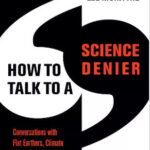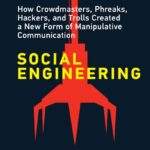
Image: iStock/Yuuji
March 2023
Toxic Technology
Undeniably, the ubiquitous global internet combined with mobile personal communication devices has enriched the lives of billions, but — and at the same time — it has impoverished people and public life in many subtle ways. For example, ride-sharing technology has made personal transportation more convenient for those that can afford it, but it has also devastated the lives, families, and finances of taxi drivers (while massively enriching, financially, a very few). Putting a mega-casino in everyone’s pocket has made a form of entertainment (i.e., gambling) readily accessible to billions, but it has also devastated the lives, families, and finances of gambling addicts (while massively enriching, financially, a very few).
Moreover, having potentially unrestricted access to knowledge and expertise and being potentially able to reach audiences of unparalleled size has greatly empowered the ordinary citizen. However, advances in neuroscience, data science, individual identification, and design for capturing attention have reduced many to little more than predictable (and so more easily manipulated) finite-state machines. Consequently, people can become helpless units in an aggregated revenue stream, producing a reversion to a societal organization based on feudal arrangements. And it remains a source of concern to progressive leadership that the world’s most technologically advanced nation should also be the most credulous with respect to, for example, mask-wearing and vaccination during a global pandemic. Although this can be partially attributed to opportunistic cynicism in advancing an extreme political agenda, what sort of signals are being sent here?
The question underlying these radical opposites and contrasting extremes is this: clearly “we”—“we” meaning both as individuals and as a society—have developed a deep and special relationship with our devices, and in many dimensions, this relationship has been undeniably beneficial. But now, could this relationship, in the parlance of psychotherapy and counseling, be categorized as toxic ?
Free Online Content
 BOOK REVIEW: How to Talk to a Science Denier Posted in: Articles, Book Reviews, Case Studies, Environment, Ethics, Human Impacts, Magazine Articles, Social Implications of Technology, Societal Impact - The fact that science denial is deeply implicated in identity helps explain why science deniers are usually unmoved by contrary… ... Read More
BOOK REVIEW: How to Talk to a Science Denier Posted in: Articles, Book Reviews, Case Studies, Environment, Ethics, Human Impacts, Magazine Articles, Social Implications of Technology, Societal Impact - The fact that science denial is deeply implicated in identity helps explain why science deniers are usually unmoved by contrary… ... Read More BOOK REVIEW: The Smart Wife: Why Siri, Alexa, and Other Smart Home Devices Need a Feminist Reboot Posted in: Articles, Artificial Intelligence (AI), Book Reviews, Ethics, Human Impacts, Magazine Articles, Robotics, Social Implications of Technology, Societal Impact - Strengers, an Associate Professor of Digital Technology at Monash University, and Kennedy, a postdoc at RMIT University, Melbourne, VIC, Australia,… ... Read More
BOOK REVIEW: The Smart Wife: Why Siri, Alexa, and Other Smart Home Devices Need a Feminist Reboot Posted in: Articles, Artificial Intelligence (AI), Book Reviews, Ethics, Human Impacts, Magazine Articles, Robotics, Social Implications of Technology, Societal Impact - Strengers, an Associate Professor of Digital Technology at Monash University, and Kennedy, a postdoc at RMIT University, Melbourne, VIC, Australia,… ... Read More BOOK REVIEW: Atomic Doctors: Conscience and Complicity at the Dawn of the Nuclear Age Posted in: Articles, Book Reviews, Environment, Ethics, Health & Medical, Human Impacts, Magazine Articles, Social Implications of Technology, Societal Impact - Dr. Nolan and his colleagues were responsible for developing standards to protect against radiation exposure in the laboratory and during… ... Read More
BOOK REVIEW: Atomic Doctors: Conscience and Complicity at the Dawn of the Nuclear Age Posted in: Articles, Book Reviews, Environment, Ethics, Health & Medical, Human Impacts, Magazine Articles, Social Implications of Technology, Societal Impact - Dr. Nolan and his colleagues were responsible for developing standards to protect against radiation exposure in the laboratory and during… ... Read More Book Review: Social Engineering: How Crowdmasters, Phreaks, Hackers, and Trolls Created a New Form of Manipulative Communication Posted in: Articles, Book Reviews, Human Impacts, Magazine Articles, Social Implications of Technology, Societal Impact - Social media companies have intentionally created platforms that actively spread disinformation. What can we do to protect our society against… ... Read More
Book Review: Social Engineering: How Crowdmasters, Phreaks, Hackers, and Trolls Created a New Form of Manipulative Communication Posted in: Articles, Book Reviews, Human Impacts, Magazine Articles, Social Implications of Technology, Societal Impact - Social media companies have intentionally created platforms that actively spread disinformation. What can we do to protect our society against… ... Read More The Unexpected Value of Volunteering Posted in: Articles, Human Impacts, Magazine Articles, President's Message, Social Implications of Technology, Societal Impact - When you actively participate in an area in which you are “passion-driven,” others notice, and opportunities will open for you.… ... Read More
The Unexpected Value of Volunteering Posted in: Articles, Human Impacts, Magazine Articles, President's Message, Social Implications of Technology, Societal Impact - When you actively participate in an area in which you are “passion-driven,” others notice, and opportunities will open for you.… ... Read More “It Sets Boundaries Making Your Life Personal and More Comfortable”: Understanding Young People’s Privacy Needs and Concerns Posted in: Articles, Human Impacts, Magazine Articles, Privacy & Security, Social Implications of Technology, Societal Impact - Young people's unique understandings and perspectives are often not considered in debates and discussions around privacy and security. This article… ... Read More
“It Sets Boundaries Making Your Life Personal and More Comfortable”: Understanding Young People’s Privacy Needs and Concerns Posted in: Articles, Human Impacts, Magazine Articles, Privacy & Security, Social Implications of Technology, Societal Impact - Young people's unique understandings and perspectives are often not considered in debates and discussions around privacy and security. This article… ... Read More Toxic Technology Posted in: Articles, Artificial Intelligence (AI), Communication Technology, Editorial & Opinion, Ethics, Health & Medical, Human Impacts, Magazine Articles, Social Implications of Technology, Societal Impact - Technology has always been about more than simply a route to increased productivity and economic growth; technology also provides the… ... Read More
Toxic Technology Posted in: Articles, Artificial Intelligence (AI), Communication Technology, Editorial & Opinion, Ethics, Health & Medical, Human Impacts, Magazine Articles, Social Implications of Technology, Societal Impact - Technology has always been about more than simply a route to increased productivity and economic growth; technology also provides the… ... Read More
Departments
Social Engineering: How Crowdmasters, Phreaks, Hackers, and Trolls Created a New Form of Manipulative Communication, by Rober W. Gehl and Sean T. Lawson
Nathaniel Knopf
Atomic Doctors: Conscience and Complicity at the Dawn of the Nuclear Age, by James L. Nolan, Jr.
Rachelle Linner
The Smart Wife: Why Siri, Alexa, and Other Smart Home Devices Need a Feminist Reboot, by Yolande Strengers and Jenny Kennedy
Rachel Maines
Features
Salah Hamdoun, Rebecca Monteleone, Terri Bookman, and Katina Michael
Stefan Fölster and Andrej Litwin
Neshat Elhami Fard, Rastko R. Selmic, and Khashayar Khorasani
Matthew Marshall
Rys Farthing, Genevieve Smith-Nunes, Teki Akuetteh, Kadian Camacho, Katja Koren Ošljak, and Jun Zhao
NOTE: Most IEEE Technology and Society Magazine columns and department articles are publicly accessible at no charge. Click on the title of any non-refereed article to read.
SSIT membership (subscription) is required to access refereed articles (marked with asterisk).






 JOIN SSIT
JOIN SSIT